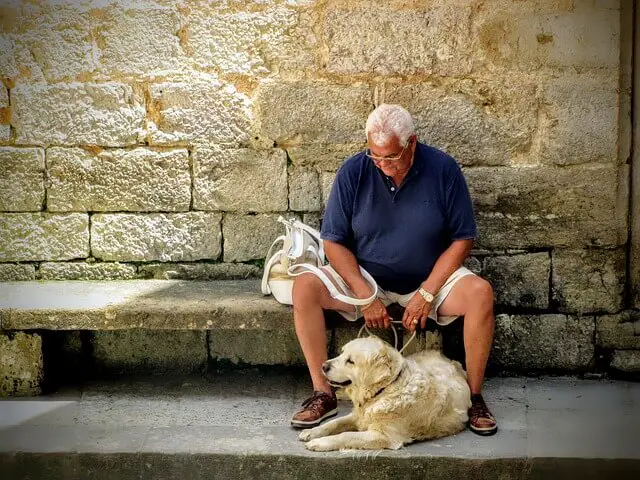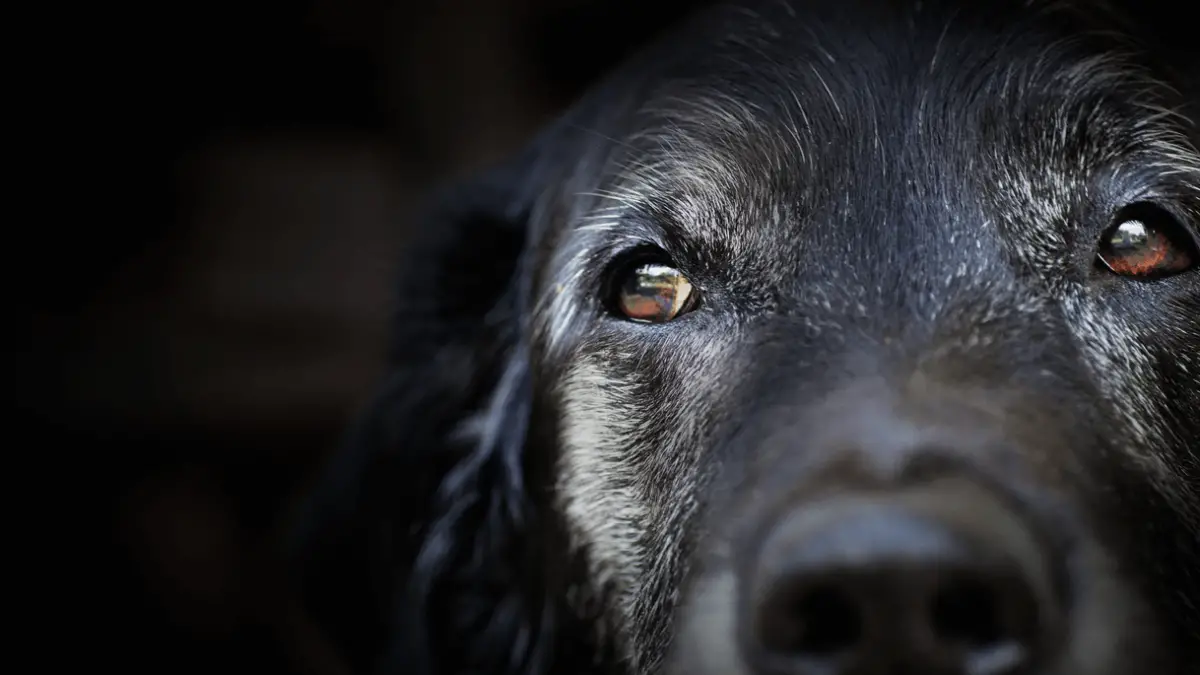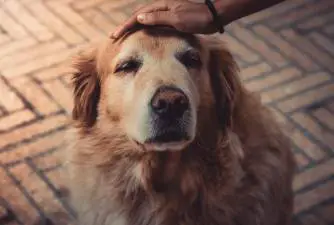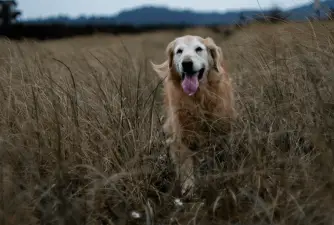At What Age Is a Dog Considered a Senior?
21.06.2022.
At some point, your dog will become senior. Senior dogs can also enjoy life and have a lot of things to offer, but first, you must know when a dog is considered a senior. There are many different equations for calculating dog years, but to be sure when your dog will enter old age, some factors can help you determine. Let's start.
At what age is a dog considered a senior?
The most famous equation for calculating dog years is by using the 7:1 ratio – for every 1 human year dog will be 7 years older. This equation is not that simple. You can't expect small dog breeds such as Chihuahua to enter senior age simultaneously as a Great Dane. Every dog breed has a different life expectancy, and they enter senior age at different times.
RELATED: 7 Tips for Improving Your Senior Dog’s Quality of Life
Generally speaking, this is roughly estimated when different size dog breeds will enter senior age:
- Small dog breeds – 10 -12 years
- Medium dog breeds – 8- 10 years
- Large dog breeds – 6-8 years

IMPORTANT TIP: This scale is just for educational purposes, and it doesn't necessarily mean that your dog will be considered senior at that age. Two dogs of the same breed can live very differently and have different lifespans.
What are signs that my dog is aging?
Like humans, dogs will experience different health problems as they age. You can catch your dog slowing down, lacking energy, vision, or hearing problems. That is a normal part of aging. The best thing you can do is to provide your dog with feeling comfortable and to allow him to live the best life possible.
Other problems that senior dogs can experience are:
- Decreased motion
- Poor eyesight
- Graying hair
- Stiff muscles
- Stiff joints
- Arthritis
- Low energy
- Anxiety
- Confusion
- Problems with incontinence
- Periodontal diseases
- Kidney and liver disease
- Depression
- Urination problems
When you notice any of these problems, you should consult with your vet and run a few checks to ensure that your dog is not in pain and ensure proper medication and treatment.
RELATED: Is Your Senior Dog Losing Hearing? Here's How to Know for Sure
Keeping your senior dog comfortable
As we already said, as your dog ages, he will experience some health problems. The idea is that you provide your dog with all necessary supplements, medications, and treatment to ensure that your senior dog lives a happy and healthy life. You can talk to your vet and ask about various supplements you can give your senior dogs to ease their pain.

Supplements such as glucosamine and hemp oil products can help your dog with joint problems. Many dogs at senior age will have problems jumping down and up, so you should consider getting them a ramp or stairs to get to the bed.
You can also help with their joint pain by providing them with comfortable mattresses. Senior dogs can experience a lot of problems with slippery areas, so if you have slippery floors at your home, try considering putting on non-slip mats.
RELATED: Senior Dog Panting at Night - What Should I Do?
With these three tips, you can fully help your senior dog:
1. Nutrition
When your dog enters old age, there is a special food for him. Since your dog will not be active as he used to be, his diet should be balanced. Obesity is a significant problem for all age groups of dogs, but especially for seniors. A rough estimate is that half of US dogs are obese. Obesity can shorten your pet's life by causing many health problems.
Another problem that senior dogs can experience is dog dementia. By feeding your dog with omega-3 fatty acids, your will provide your dog to help maintain mental alertness.

If you don't have experience with your dog's diet, your vet can help you determine what will be the best diet for your dog. Your vet can also suggest all the supplements you can give your dog to boost his immunity.
2. Exercise
Your senior dog will also need regular physical and mental exercise. Of course, the amount of activity should be lowered. Regular exercise will keep your dog in good shape and keep your dog's joints healthy. You can take your dog for long walks, swimming, or even dog sports.
You must train your dog's mind. By challenging dogs' minds, your dog can learn new tricks, and its brain will stay healthy and active.
RELATED: Tips & the Importance of Training Senior Dogs
3. Vet visits
Since senior dogs are prone to many different health problems, you should regularly check your dog's health. By going into vet clinics, you and your vet can catch a disease in an early stage, and in that case, it will be much easier to treat the problem, and your dog will have more time to manage the problem.
Conclusion
To calculate at what age a dog is considered a senior, you must consider various factors, but the most important ones are dog size and breed. When your dog enters old age, the best thing you can do is to provide him with a healthy diet and proper mental and physical exercise to prevent forming of new diseases and allow him to live a happy and healthy life.
World Dog Finder team







Share